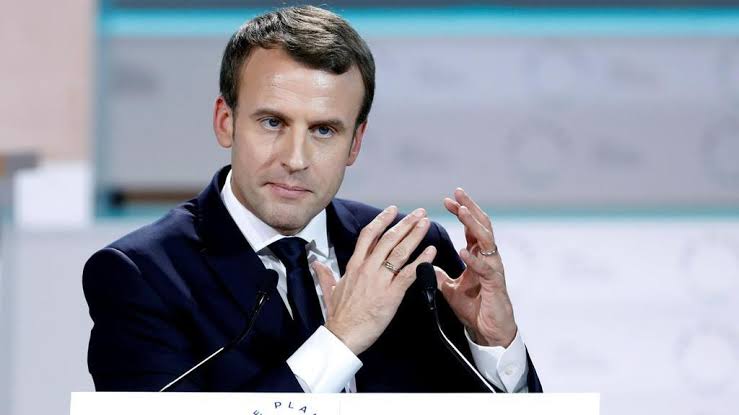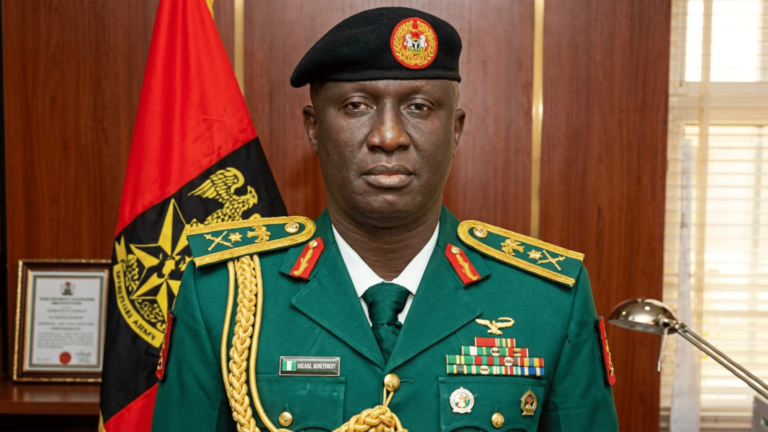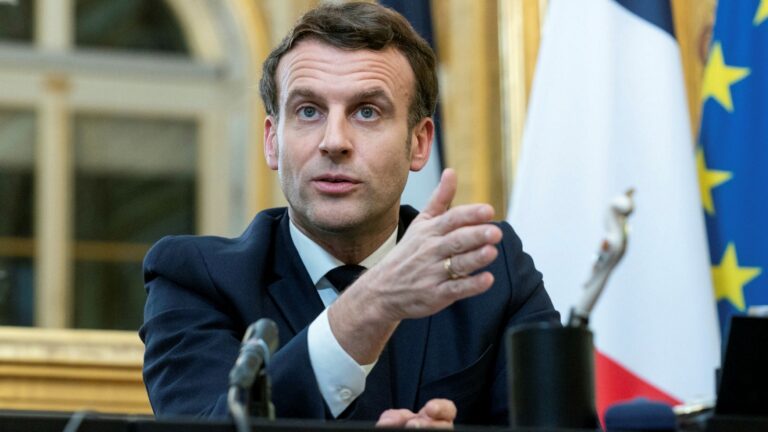
French President Emmanuel Macron called on Syria’s interim government to collaborate with a U.S.-led coalition that is combating extremist organizations in the region as he convened a conference on Thursday regarding the future of the Middle Eastern country.
Macron’s remarks arise amidst doubts concerning the United States’ dedication to the area. Thursday’s gathering in Paris, which involved European and Arab countries, was the third on Syria since the oppressive regime of Bashar Assad was removed in December, and included Syria’s interim Foreign Minister Asaad al-Shibani.
“Syria must unequivocally persist in its battle against all terrorist groups that are causing chaos,” Macron stated. “If Syria opts for cooperation” with the international coalition Inherent Resolve, France would endorse this decision, he continued.
The conference in Paris, which involved foreign ministers and other officials from the participating nations, aimed to synchronize efforts in supporting a peaceful transition, especially as the new government in Damascus emphasizes its intention to foster better ties with the West.
Macron further urged the Syrian interim government to “fully incorporate” the U.S.-backed, Kurdish-led Syrian Democratic Forces (SDF) into the Syrian transition, describing them as “valuable allies.”
Read more: On the 80th anniversary of the bombing of Dresden, tributes to victims are hijacked by far right
“I believe your duty today is to integrate them and also to permit these forces to join in,” he expressed.
On Thursday, Syrian organizers of a conference in Damascus aimed at outlining the country’s political future indicated that the discussions will involve all parts of Syrian society except for the Kurdish-led administration in the northeast and supporters of Assad.
Many of the former insurgent groups in the country have agreed to disband and integrate into the newly established Syrian army and security forces, but the Kurdish-led Syrian Democratic Forces (SDF) have yet to adopt a similar stance. SDF troops have been engaged in clashes with Turkish-backed factions in northern Syria, as the Kurds worry about forgoing the political and cultural advancements they have obtained during the civil war through the establishment of their own jurisdiction in the northeast.
See more: Scarlett Johansson Issues a Warning about “AI Misuse” Following a Fake Kanye video.
Negotiations are still taking place between the SDF and the government in Damascus.
In order to facilitate a peaceful rebuilding process during the transition following Assad’s rule, more assistance is essential. The nation must reconstruct housing, electrical, water, and transportation infrastructure after nearly 14 years of conflict. The United Nations estimated in 2017 that the cost would be no less than $250 billion, while some experts now suggest it could be at least $400 billion.
With limited productive sectors and government employees earning about $20 per month, Syria has increasingly relied on remittances and humanitarian assistance. However, the flow of aid was significantly reduced after the Trump administration stopped U.S. foreign aid last month.
The impact was particularly severe in the northwest of the country, a previously rebel-held area hosting millions displaced by the civil war. Many of these individuals reside in extensive tent camps.
The interruption of USAID funding led to the closure of clinics that served numerous camps, and nonprofits had to lay off local staff. In northeastern Syria, a facility accommodating thousands of family members of Islamic State fighters descended into chaos when the organization providing essential services was compelled to briefly cease operations.
A workshop uniting key donors from the Group of Seven leading industrialized nations, the United Nations, and essential organizations from Arab countries will coincide with the conference to coordinate international assistance to Syria.
The future of U.S. military backing in the area is also shrouded in uncertainty.
In 2019, during his first term, Trump opted for a partial withdrawal of U.S. troops from the northeast of Syria before reversing that decision. In December of the previous year, as rebels were advancing towards toppling Assad, Trump remarked that the United States should not “dive into the middle of a Syrian civil war.”
As Ahmad al-Sharaa works to strengthen his authority in Syria, the intentions of the U.S. in the region remain ambiguous. A U.S. representative was present at the conference in Paris on Thursday.
When questioned about the U.S. stance, French Foreign Minister Jean-Noël Barrot responded, “I’m not going to play guessing games.”
Reflecting on Trump’s diplomatic approach “to only make decisions that enhance America’s safety … These are the words we employed to communicate with our counterparts in the new administration,” Barrot mentioned.
The leader of the primary U.S.-backed forces in Syria recently asserted that American troops should remain in Syria, warning that a withdrawal would favor the Islamic State group.
Since the fall of Damascus on December 8 and Assad’s escape to Moscow, the new leadership has not yet provided a clear outline for the governance of the country.
The extremist group Hayat Tahrir al-Sham, formerly linked to al-Qaida and designated as a terrorist organization by the EU and U.N., has positioned itself as the de facto authority in Syria after cooperating with southern fighters during last year’s offensive.



